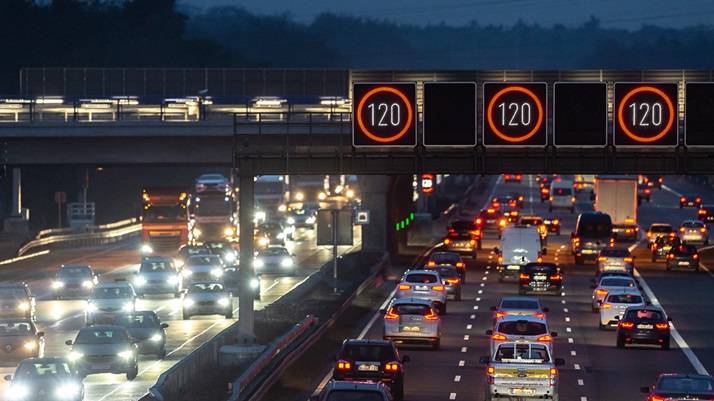Germany’s Autobahn, a symbol of speed and freedom for many, is at the center of a heated political debate. The discussion over whether to introduce a speed limit on these legendary highways has been a contentious issue in the country for decades.
The controversy dates back to 1973 when, in response to soaring petrol prices during the oil crisis, a temporary speed limit of 100 kilometers per hour (62 miles per hour) was imposed. This move sparked widespread outrage and protests from groups like Germany’s ADAC automotive club. Since then, various attempts to establish a general speed limit have failed, with resistance coming from groups like Bavaria’s Christian Social Union (CSU) party, which has even launched a petition against it.
Currently, only about 30% of Germany’s Autobahn has speed limits, while the rest remains unrestricted, allowing drivers to travel as fast as they want. This unique feature has even been marketed as a tourist attraction by sports car rental companies. However, supporters of a speed limit argue that reducing speed would lead to significant environmental benefits, including lower fuel consumption and emissions of pollutants like carbon dioxide (CO2), nitrogen oxides, and particulate matter.
According to calculations by the German Environment Agency (UBA), implementing a speed limit of 120 kilometers per hour could save millions of tons of CO2 equivalent and significantly reduce emissions. Proponents also argue that a speed limit would improve road safety, reduce noise pollution, and ease traffic congestion by allowing more cars to travel simultaneously.
Despite these arguments, opponents, including some political parties like the conservative Christian Democratic Union (CDU) and CSU, the far-right Alternative for Germany (AfD), and the neoliberal Free Democratic Party (FDP), argue that a speed limit would have little impact on the environment and would infringe on individual freedom. The FDP, in particular, has been vocal against a speed limit and has even commissioned a counter-study, which has been criticized for its methodology and credibility.
While the debate over a speed limit on Germany’s Autobahn continues, it reflects broader discussions around climate action, individual freedoms, and the balance between tradition and progress in a rapidly changing world.
(Source: DW | MSN)









